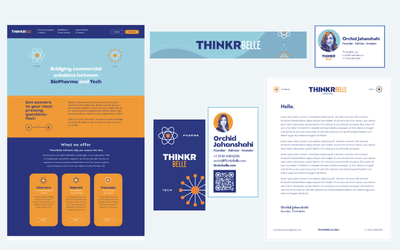Growth takes planning. For small- or medium-sized businesses, future-proofing can take a backseat to more imminent concerns, but ignoring the long-term health and relevance of your business is a grave mistake. Failure to anticipate trends, ignoring the warning signs, and refusing to innovate can sink your business.
We all want to future-proof our businesses, especially in uncertain times. But how? Take a good look at your marketing — particularly if you’ve never had a fully-fledged marketing function. Not only is marketing directly related to sales, it is also the function that most needs to respond to external changes like buyer behaviour, positioning relative to competitors and the business during a pandemic. Read on to discover how marketing can help future-proof your business.
Market research
No matter what your business sells, products or services, its relevance is dependent on meeting its customers’ needs. Those needs or desires change over time naturally, even while it’s “business as usual,” and more so during extraordinary times. The COVID-19 pandemic certainly qualifies and with the raft of changes to protocols and daily life we’ve seen numerous businesses shift their model, or even their product. It’s been so ubiquitous that the word “pivot” itself risks becoming a cliché.
If you want to prepare your business for the future, you need to understand what your customers want. The easiest way to find that out is to listen to them. Run polls, surveys, and questionnaires to discover their needs and pain points. Market research can also return insight and help you identify consumer market trends and changes in customer behaviour.
Think of all the clothing brands that took on manufacturing face masks in the early part of 2020. To innovate and stay competitive, you need to anticipate the changing needs of your customers and to identify influencing factors that would require your business to…well… pivot.
Internal communications
Nobody knows your business like the people who work in it. C-Suite professionals may have deep knowledge of your industry but it’s the frontline workers who have daily interactions with your most important stakeholders—your customers.
If you want to know the direction your business should be heading, look to your employees. Create transparent, two-way communication within your organization and ask for feedback, suggestions, and advice. Consider, too, having a consultant run a strategy and planning session to develop a concrete plan. Involving employees signals that you value their input and also gets their buy-in.
Done properly, internal communications can promote a culture of trust and respect, and result in a wealth of new perspectives and ideas that will help you identify opportunities.
Customer experience
Your marketing strategy should account for every step of your customer journey, from awareness and conversion to renewal and referral. Marketing can help improve your customers’ perception of and experience with your brand. Now is a good time to review your marketing strategy and determine whether your tactics are still relevant and effective. Here are some ideas to get you started:
- Look at scalability
What is the state of your current marketing channels? Has the pandemic changed the effectiveness of some tactics? Is your tech going to carry you forward?
- Build in change
Make sure your strategy is mutable. Especially now, flux is a given so make sure you’re not locked into any one strategy.
- Test multiple strategies
It’s easy to fall into a routine, even with marketing. Now is the perfect time to try out new tactics and see what’s working.
- Encourage diversity
Like pivot, diversity may well be a word that’s losing its power. But the fact is, diversity in ideas, in hiring, and in tactics is a good thing. It’s one of the components of innovation.
- Build your brand
Don’t underestimate the power of brand loyalty. Think less about specific products or services and spend some time on your customer relationships.
If the pandemic has taught us anything it’s that everything changes. But this was true before the pandemic, too. We might not be able to predict the future but we can certainly plan for it. No matter what the circumstance, the most adaptable businesses will always have the edge. Start your future-proofing by revisiting your marketing strategy to make sure you’re ready for what comes next.
[/et_pb_text][/et_pb_column][/et_pb_row][/et_pb_section]


